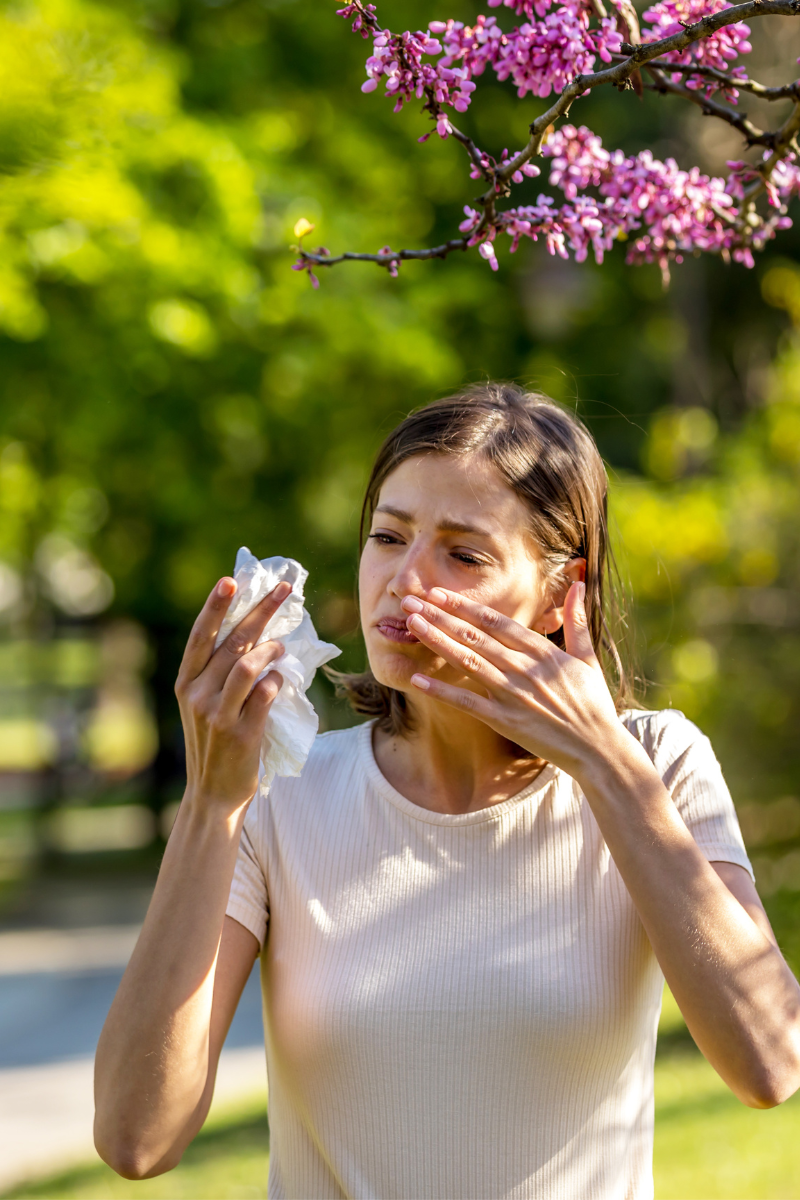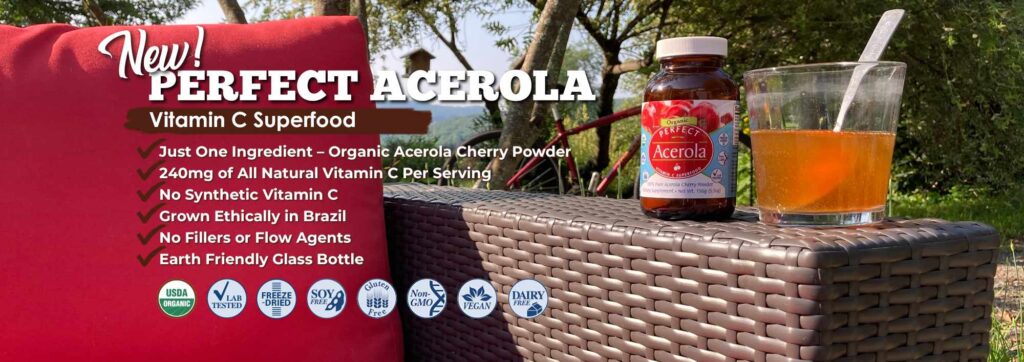Can What You Eat Help to Block Histamine?
Histamine release causes allergic symptoms like a runny nose, watery eyes, and skin rashes, a normal immune response to allergens.
That is why we reach for antihistamines like Benadryl and Zyrtec. But maybe we should look at what we are eating or look for foods that are natural antihistamines.
Histamine is released as a natural immune response to help protect the body and as an excitatory neurotransmitter (brain chemical) to give us that get-up-and-go feeling.
Because histamine has many different roles in our bodies, high histamine symptoms can be highly varied.
- Migraines, Headaches
- Brain Fog
- Nausea
- IBS – Both Constipation & Diarrhea
- Anxiety
- PMS – Estrogen Imbalances
- Thyroid Dysfunction
- Nerve & Muscle Pain
- Allergic Symptoms
- Autoimmune Flares – Hashimoto's, Psoriasis
We can also get histamine from our diet from foods high in histamine, like fermented foods.
If we develop
What is Histamine Intolerance ?
Histamine intolerance is a food intolerance that is becoming increasingly more common.
Like most food intolerances, it involves a lack of enzymes that help to break down compounds like lactose (milk sugar) and histamine from foods.
For instance, with lactose intolerance, the symptoms usually involve digestive issues like diarrhea and gas.
Digestive disturbances with lactose intolerance are due to a lack of an enzyme called lactase.
Once identified, most food intolerances can be easily managed by avoiding certain foods or supplementing with digestive enzymes like lactase.
What makes
We become intolerant to histamine when we cannot correctly manage histamine levels, including due to a lack of particular enzymes, poor gut health, nutrient deficiencies, or genetics.
Can Antihistamine Medications Help Reduce Symptoms of Histamine Intolerance ?
Since I have struggled with
But I am afraid that in most cases, medications like Benadryl won't work to reduce
Antihistamine medications act by blocking the cell receptors' response to histamine. The target of these medications is predominately targeting our immune response to allergens.
So, it will help with an allergic reaction but not for other symptoms of
What are Natural Antihistamines and Do They Work?
Many natural antihistamines reduce histamine by either reducing inflammation or by blocking histamine production from the mast cells.
Chronic inflammation increases the release of histamine and is a significant contributor to
Therefore an anti-inflammatory diet like the Mediterranean Diet can be very effective at reducing histamine levels.
Other natural antihistamines help support DAO production, the key enzyme that blocks histamine absorption from our food and degrades histamine.
Foods Rich Polyphenols Reduces Inflammation & Histamine
Some of the foods rich in polyphenols or bioactives are not just anti-inflammatory; they reduce histamine production, acting as a natural antihistamine.
One study found that watercress, a cruciferous vegetable, inhibited up to 60% of histamines released. Watercress is very rich in vitamins and compounds that significantly inhibited histamine release.
Watercress is challenging to find in the grocery store and very seasonal. Would other cruciferous vegetables like broccoli and cauliflower have the same antihistamine qualities?
Considering that cruciferous vegetables are high in bioactives, I would bet that they are a natural antihistamine.
Other foods, herbs, and spices that have been shown to have antihistamine qualities are:
- Moringa – A SuperFood
- Chamomile Tea or Supplement
- Ginger, Galangal (Tai ginger)
- Turmeric
- Apples, Peaches
- Brazil Nuts – Due to their high selenium content.
Vitamin C as Supplement is a Powerful Antihistamine
Besides vitamin B6, vitamin C is vital to DAO production (diamine oxidase), the enzyme that degrades histamine.
DAO also blocks the absorption of histamine from our food in our gut. Numerous studies have shown that supplementing with vitamin C is a powerful antihistamine.
Some evidence shows that synthetic vitamin C can be high in histamine as the majority of synthetic vitamin C or ascorbic acid comes from fermented corn.
If you are sensitive to corn or are concerned with the potential histamine levels of ascorbic acid, Perfect Acerola might be a better choice for you as it is just one ingredient that comes from acerola cherries.
Supplementing with vitamin C does come with challenges, however.
Using vitamin C as an antihistamine requires larger dosages, upwards of 2000 mg. per day, to be effective. This large of a dosage can cause digestive disturbances like diarrhea, gas, and heartburn.
You can also use vitamin C that has added minerals like this one, which reduces these negative side effects.
Taking it throughout the day also will reduce heartburn or stomach upset from this large of a dosage.
When Not to Supplement With Vitamin C as An Antihistamine
Besides causing digestive disturbances, vitamin C in large dosage can cause oxalate toxicity. Oxalate toxicity can lead to kidney stones, nerve and muscle pain, as well as joint pain.
We absorb oxalates from our food, and the body produces oxalates. Vitamin C is one of the vital nutrients that are needed to make oxalates.
Several studies have shown that supplementing with vitamin C can lead to oxalate toxicity.
Also, vitamin C can lead to iron toxicity. Vitamin C increases the absorption of iron from our food which is excellent if you are iron anemic.
But if you are not, then you could absorb too much iron leading to oxidative stress and chronic inflammation from too much iron. And, this will increase your histamine levels.
Quercetin and Stinging Nettle – Can They Replace Antihistamine Medications?
Quercetin is a polyphenol found in many foods, with one of the rich sources from the Allium or onion family. Foods like green onions, garlic, leeks, yellow onions, and red onions are rich in quercetin.
But you would have to consume a large amount of these foods to have the same effect as an antihistamine medication.
Stinging nettle is a common medicinal herb found in teas and supplements and is a potent antihistamine.
As seen with HistaEze by Designs for Health, combining quercetin, stinging nettle, and vitamin C is a powerful natural antihistamine. You are less likely to experience vitamin C's adverse side effects with a lower vitamin C dosage.
When should you not take a large dosage of quercetin? While quercetin is very effective at reducing histamine levels, it can also “down-regulate” the enzymes known as catechol-O-Methyltransferase or COMT.
COMT helps to degrade dopamine and estrogen to help balance our neurotransmitters and estrogen levels. If you have a reduced COMT as I do, taking large dosage of quercetin may lead to anxiety and estrogen imbalances. If you do not know your genomics or have a reduced COMT, start slowly with 250 mg. per day and increase to 500 mg.
On the other hand, a fast COMT can lead to decreased dopamine levels, and you may benefit from taking quercetin. Still have questions about your COMT gene and supplements? Check our FREE Eguide – Your COMT Supplement Guide.
Could Fiber be a Natural Antihistamine?
Allergies and
A recent study determined if fiber-rich foods and the metabolites produced in the gut from fiber reduced histamine levels.
They found that specific fibers, including resistant starch, helped regulate mast cells and reduce histamine levels!
Fiber also helps produce anti-inflammatory compounds like butyrate that reduce inflammation in the gut and help resolve IBS and IBD.
The fiber blend in FiberMend is an excellent combination of different types of fiber that help to rebuild and heal the gut reducing release of histamine. Get 15% off with FREE shipping on on orders over $50.00 by signing up with my Fullscript Account. Easy to sign up – no code necessary!
Whereas fiber in itself cannot act as an antihistamine, it does help regulate mast cell release of histamine.
It is not uncommon for my clients to have IBS,
Resolving their digestion conditions helps overcome their
References:
- The Role of Histamine and Histamine Receptors in Mast Cell-Medicated Allergy and Inflammation: The Hunt for New Therapeutic Targets, Thangam, et al, August 2018
- Mast Cell Stabilizing Foods – The Insitute of Functional Medicine
- Effect of Dietary Fiber and Metabolites on Mast Cell Activation and Mast Cell-Associated Diseases, Folkerts, et al, May 2018
- Mast Cells and Irritable Bowel Syndrome: From the Bench to the Bedside, Zhang, et al, April 2016









